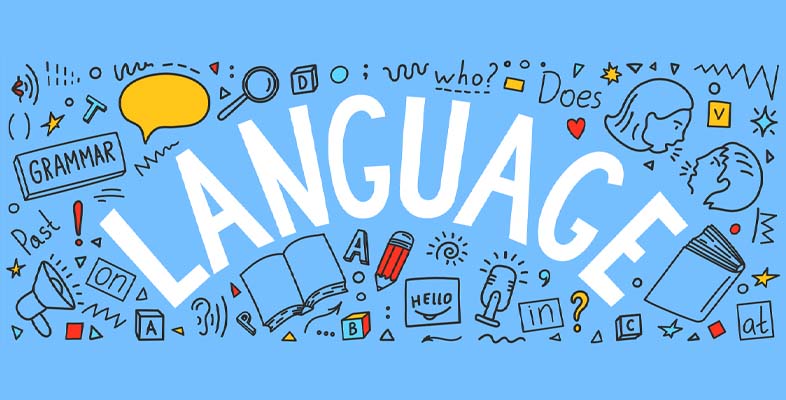Language is a reflection of culture, and the unique expressions from Nigeria and Africa as a whole have made their mark on the global lexicon.
From everyday slang to words that capture the essence of communal traditions, these terms have been recognized and celebrated for their distinct contributions. Whether it’s the hustle of Lagos captured in “danfo” or the heartfelt expressions like “ubuntu,” each word carries a story rooted in history, experience, and identity.
Read || Symptoms of Breast Cancer in Men and Women
As you explore this collection of African-origin words, you’ll gain more than just linguistic insights. You’ll be transported to markets, homes, and historical moments, giving you a richer understanding of the cultures that shaped these words.
- Adinkra – Akan visual symbols representing concepts or aphorisms.
- Aardvark – Afrikaans for “earth pig.”
- Agric – Related to agriculture [Nigerian/West African English].
- Ammonia – Derived from Egyptian, linked to the god Amun.
- Apartheid – Afrikaans policy of racial separation.
- Aṣẹ – Yoruba for “I affirm” or “make it happen.”
- Babaláwo – Yoruba priest of traditional religion.
- Banana – Adopted from Wolof via Spanish/Portuguese.
- Barbing Salon – A barber’s shop [Nigerian English].
- Basenji – Dog breed from Central Africa.
- Bantu – From Bantu languages, meaning “people.”
- Biafran – Extremely skinny, from Nigerian Civil War starvation.
- Biltong – Afrikaans for cured meat, common in South Africa.
- Boma – Swahili, meaning enclosure.
- Bongo – West African origin, referring to drums.
- Braai – Afrikaans for barbecue, popular in South Africa.
- Buka – An inexpensive casual restaurant.
- Bukateria – An informal, low-cost restaurant, typically selling prepared food.
- Buckra – “White person,” from Efik and Ibibio.
- Chachacha – Possibly from Kimbundu, mimicking the sound of bells in traditional dances.
- Chimpanzee – Loanword from a Bantu language.
- Chop – To eat [Nigerian/West African English].
- Chop-chop – Bribery and embezzlement of funds [Nigerian English].
- Cola – Derived from West African languages.
- Danfo – A yellow minibus in Lagos’s informal transport system [Nigerian English].
- Djembe – Drum from West Africa.
- Ember months – September to December, a period of heightened activity [Nigerian English].
- Fanimorous – Yorùbá “fani mọ́ra,” meaning “to attract.”
- Fandango – Possibly from West African Kikongo.
- Flag-off – To start an event or activity [Nigerian English].
- Gerenuk – Long-necked antelope from Eastern Africa.
- Gist – Gossip or chat [Nigerian English].
- Goober – Possibly derived from Bantu.
- Guber – Relating to a Governor or Governorship Election [Nigerian English].
- Hakuna Matata – Swahili for “no worries.”
- Impala – Zulu name for a type of antelope.
- Indaba – Zulu/Xhosa for “meeting” or “news.”
- Jazz – Possibly from West African languages.
- Jive – Possibly from Wolof “jev.”
- Juke – Likely from West African languages through Gullah.
- Kalimba – African musical instrument with plucked keys.
- Kannywood – Nigerian Hausa-language film industry [Nigerian English].
- K-leg – A condition where knees turn inward [Nigerian English].
- Kwashiorkor – From Ga, Ghanaian language meaning “swollen stomach.”
- Lapa – Sotho for an enclosed area, often used for barbecues in South Africa.
- Mama put – Street vendor selling low-cost food [Nigerian English].
- Marimba – Bantu-origin musical instrument.
- Merengue – Dance possibly derived from Fulani.
- Mobutism – Ideology of Zairean dictator Mobutu Sese Seko.
- Mumbo jumbo – Originating from Mandingo.
- Next tomorrow – Day after tomorrow [Nigerian English].
- Nitrogen – Possibly from Egyptian origins, linked to natron.
- Non-indigene – Someone not native to a particular area [West African English].
- Obeah – Derived from West African spiritual traditions.
- Okada – Motorcycle in Nigeria [Nigerian English].
- Okapi – Animal name from Congo.
- Òyìnbó – Yorùbá term for a light-skinned person.
- Put to bed – To give birth [West African English].
- Qualitative – High quality; excellent [Nigerian/West African English].
- Rub minds together – To confer or work jointly [Nigerian English].
- Safari – From Swahili for “Journey”
- Sambo – Derived from Fulani, meaning “uncle.”
- Sangoma – Zulu term for traditional healer, common in South Africa.
- Sef – Used for emphasis, often expressing impatience [Nigerian English].
- Send-forth – Celebration marking someone’s departure [Nigerian English].
- Severally – Repeatedly; on several occasions [Nigerian English].
- Tilapia – Fish name, possibly derived from a Tswana word.
- Tòkunbọ̀ – Imported second-hand goods, especially cars [Nigerian English].
- Tsetse – Fly name from Bantu languages.
- Ubuntu – Nguni term for “human kindness” or humanity.
- Uhuru – Swahili for “freedom.”
- Vodou, Voodoo – Derived from West African spiritual practices.
- Vuvuzela – Horn used in South African events, especially sports.
- Yam – Derived from West African languages.
- Zone – Allocate political office by region [Nigerian English].
- Zoning – Political practice of regional nominations for balanced representation [Nigerian English].
- Zombie – Likely from West African origins (Kikongo).
Get instant and latest news updates via Our WhatsApp Community, X/Twitter or Google News online channel.
Credit – Oxford English Dictionary, Wikipedia, English Department of St. Cloud State University

